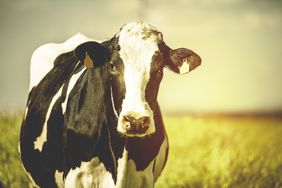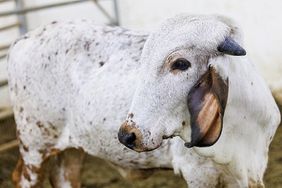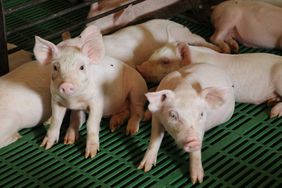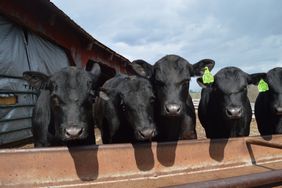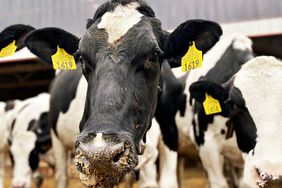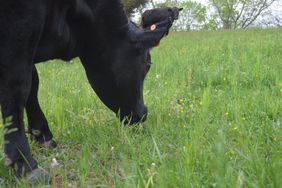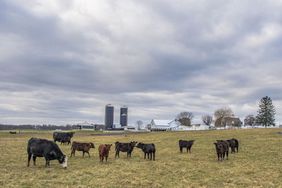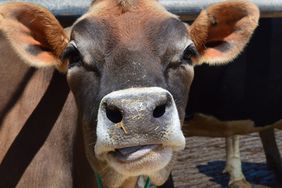:max_bytes(150000):strip_icc()/Pigs20on20Leon20Sheets20Farm-2000-bcf8a1cecd5c4935ad91818d6b61f89e.jpg)
The Porcine Reproductive and Respiratory Syndrome (PRRS) costs hog farmers $500 million in losses of reproduction productivity per year. A new breed of pigs developed by Acceligen, a precision breeding and genetic innovator, could change that.
- READ MORE: Farmers await testing on PRRS resistant hogs
"The PRRS virus is endemic in this country. It's common in all swine-producing states," says Daniel Linhares, a professor of veterinary diagnostic and production animal medicine at Iowa State University.
By using gene editing and protein modifications developed by Kansas State University, Acceligen has bred pigs naturally resistant to PRRS.
"Gene editing is one of the most powerful breeding tools that allow us to address some of the biggest challenges facing the pork industry and to create a more sustainable and ethical food system," says Tad Sonstegard, CEO of Acceligen.
The resistance to PRRS was proven effective by collaborating with Professor Bob Rowland at the University of Illinois.
Currently, most producers and veterinarians have vaccination programs to control significant production losses such as weight loss or sudden death, but no one has eradicated the virus permanently, says Linhares.
This new development could be essential in the industry's elimination efforts of the virus.
- READ MORE: 5-step sow conditioning program
"At Acceligen, our goal is to use the best tools for breeding and selection to create a better future for animals, farmers, consumers, and the environment," Sonstegard says.
The breakthrough of breeding pigs naturally resistant to PRRS is a significant step toward reducing food security risks and improving the efficiency of pork production for farmers and the industry.
